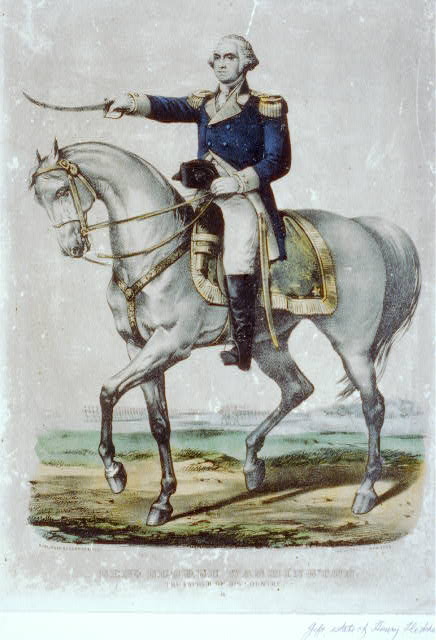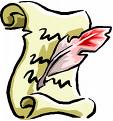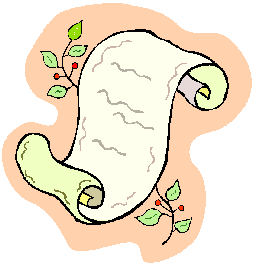

 He
who transplanted still sustains
He
who transplanted still sustains

Bold
H earts
earts






 State
Hero
State
Hero
There was Captain Washington
Upon a slapping stallion
A-giving orders to his men
I guess there was a million.
from Yankee Doodle Dandy.
The words evolved from a song sung by British military officers to make fun of
the scrappy and unprofessional-looking colonial yanks with whom they served in the French and Indian War. A
"doodle" was a simpleton. The Americans used the same song to mock them back during the revolutionary war.
wikipedia







Preamble to State Constitution
The People of Connecticut
acknowledging with gratitude, the good providence of God, in having permitted
them to enjoy a free government; do, in order more effectually to define,
secure, and perpetuate the liberties, rights and privileges which they have
derived from their ancestors; hereby, after a careful consideration and
revision, ordain and establish the following constitution and form of civil
government.
Sec. 15. Every citizen has a
right to bear arms in defense of himself
and the state.







Thou hast brought a vine out of
Egypt: thou hast cast out the heathen, and planted it.
Psalms 80:8
Yea, forty years didst thou sustain them in the
wilderness, so that they lacked nothing; their clothes waxed not old, and their
feet swelled not.
Nehemiah 9:21







Liberty was the darling object of the first settlers of this
country. Animated with the hope of enjoying those civil and religious
rights, which Heaven designed for the virtuous, they bade adieu to the joys of a
more social life, and, surrounded with the horrors of death in a thousand
different shapes, they took possession of the fair territory we now inhabit.
In the anticipation of liberty, plenty, and peace, they braved all dangers and
hardships.
Simeon Baldwin, Oration at New Haven Connecticut
July 4, 1788
Institution of Higher Learning
1701
Yale College founded by Connecticut Presbyterian ministers seeking local
alternative to Harvard.
Settled in New Haven in 1716. "Light and
Truth"
O let us strive that ever we
May let these words our watch cry be
Where e'er upon life's sea we sail:
"For God, for country, and for Yale!"
1741
Jonathan Edwards gave Commencement Address at Yale in midst of the Great
Awakening; Yale and Harvard authorities opposed English revivalist George
Whitefield.
Yale:
Yale University was founded in 1701 as the Collegiate School in Killingworth,
Connecticut, by church ministers of the colony. The upper students studied
where the rector lived, and groups of the lower students were taken by their
tutors to different towns.
The ten clergymen who
were the founders and first trustees of the College were graduates of Harvard.
The Mather family was in favor of a seminary that was stricter in theology than
Harvard, and they worked toward that end. The Connecticut legislature granted a
charter which likely was in part drafted by Judge Samuel Sewall of Boston which
stated that the school's purpose was to instruct youth in the arts and sciences
that they be fitted for public employment, both in church and civil state. The
clergy who controlled the College believed theology was the basis of arts and
sciences. The first charter required that the trustees of the College be
ministers.
In 1716 the school
moved to New Haven; and it was renamed after Elihu Yale because he donated the
largest single gift to the college before 1837. He was the grandson of Ann Boyd
Yale Eaton, whose second husband was Theophilus Eaton, one of the founders of
New Haven Colony. Elihu had amassed great wealth in India as governor of the
East India Company's settlement at Madras and had been persuaded by Cotton
Mather and Jeremiah
Dummer to make a contribution to
the college.
The College aimed to
keep the purity of the Calvinist doctrine as part of their institution. In 1722
the rector, Timothy Cutler, was dismissed because he leaned toward Episcopacy.
In 1740, a division in Connecticut was inspired by George Whitefield between
"Old Lights" and "New Lights." The "Old Lights" contended that the College did
not owe its foundation to the original trustees and that the first
charter granted by the legislature should control the College.
However, control was granted to the trustees which resulted in Yale's growth
being stunted because the legislature shut off financial aid.
Beginning in the
nineteenth century, the college expanded enormously to eventually become a world
renowned university and a major economic factor in the city. Numerous schools
were added such as medicine (1813), divinity (1822), law (1824), graduate
studies (1847), art and architecture (1865), music (1894), forestry (1900),
nursing (1923), engineering (1932), drama (1955), and organization and
management (1975). Further expansion included the founding of the Institute of
Far Eastern Languages. The Yale Library, one of the largest in the nation,
houses a large number of important collections. Also notable are the Peabody
Museum of Natural History, the Yale Art Gallery, and the Yale Center for British
Art. The Yale University Press was established in 1908.
See:
E. Oviatt, The Beginnings of Yale (1916, reprinted 1969); J. Lever and P.
Schwartz, Women at Yale (1971); B. M. Kelley, Yale: A History (1974).S
F. B. Dexter, A Selection from the Miscellaneous Historical Papers of
Fifty Years (1918); biography by H. Bingham (1939, reprinted 1968).
Regulations
at Yale College (1745)
Concerning Admission Into College
That none may Expect to be
admitted into this College unless upon Examination of the President and Tutors,
They shall be found able Extempore to Read, Construe and Parce Tully, Virgil and
the Greek Testament: and to write True Latin Prose and to understand the Rules
of Prosodia, and Common Arithmetic, and shall bring Sufficient Testimony of
his Blameless and inoffensive Life.
That no Person shall be
admitted a Freshman into this College who is more than Twenty one Years old,
unless by the special allowance of ye President and Fellows or their
Committee.

That no Person shall be admitted Undergraduate in this
College until his Father, Guardian or some proper Person hath given a Sufficient
Bond to the Steward of the College, to pay the Quarter Bills of the sd
Scholar allowed by the authority of College from Time to Time as long as He
shall continue a Member of sd College....
Of a
Religious and Virtuous Life
All Scholars Shall Live
Religious, Godly and Blameless Lives according to the Rules of God[']s Word,
diligently Reading the holy Scriptures the Fountain of Light and Truth;
and constan[t]ly attend upon all the Duties of Religion both in Publick and
Secret.
That the President, or in
his absence One of the Tutors Shall constantly Pray in the College-Hall every
morning and Evening: and Shall read a Chapter or Suitable Portion of the Holy
Scriptures, unless there be Some other Theological Discourse or Religious
Exercise: and Every Member of the College whether Graduates or Undergraduates,
whether Residing in the College or in the Town of New-Haven Shall Seasonably
Attend upon Penalty that every Undergraduate who Shall be absent (without
Sufficient Excuse) Shall be Fined one Penny and for coming Tardy after the
Introductory Collect is made Shall be fin'd one half penny.
The President is hereby
Desired as he hath Time & Opportunity to make and Exhibit in the Hall Such a
public Exposition, Sermon or Discourse as he shall think proper for the
Instruction of ye Scholars, and when He Shall See cause So to do and
Give public Notice thereof, Every Undergraduate Shall be Obliged to Attend upon
the Same Penalty as aforesaid ....
No student of this College Shall attend upon any Religious
Meetings either
Public or Private on the Sabbath or any other Day but Such as are appointed
by Public Authority or Approved by the President upon Penalty of a Fine,
Public Admonition, Confession or Otherwise according to the Nature or Demerit of
the Offence.
That if any Student Shall Profane the Sabbath by unnecessary Business,
Diversion, Walking abroad, or making any Indecent Noise or Disorder on the Said
Day, or on the Evening before or after, or Shall be Guilty of any Rude, Profane,
or indecent Behaviour in the Time of Public Worship, or at Prayer at any Time in
the College Hall, He Shall be punished, Admonished, or otherwise according to
the nature and Demerit of his Crime ....
Concerning Scholastical Exercises
Every Student Shall diligently apply himself to his Studies
in his Chamber as well as attend upon all Public Exercises appointed by the
President or Tutors, and no Student Shall walk abroad, or be absent from his
Chamber, Except Half an hour after Breakfast, and an hour and an half after
Dinner, and from prayers at Night to Nine o' the Clock, without Leave,
upon Penalty of Two Pence or more to Six pence, at the Discretion of ye
President and Tutors.
To this End the President or
Tutors Shall, by Turns, or as They conveniently can visit Student's Chambers
after Nine O'Clock, to See whether They are at their Chambers, and apply
themselves to their Studies.
That the President and Each
of the Tutors Shall according to the best of their Discretion Instruct and bring
forward their respective Classes in the Knowledge of the Three Learned
languages, and in the Liberal Arts and Sciences. In the first Year They Shall
principally Study the Tongues & Logic, and Shall in Some measure pursue the
Study of the Tongues the Two next Years. In the Second Year They Shall Recite
Rhetoric, Geometry and Geography. In the Third Year Natural Philosophy,
Astronomy and Other Parts of the Mathematics. In the Fourth Year Metaphysics and
Ethics. And the respective Classes Shall Recite Such Books, and in Such a manner
as has been accustomed, or Such as the President upon the Consultation with the
Tutors Shall think proper.
Every Saturday Shall Especially be allot[t]ed to the Study of
Divinity, and the Classes Shall dureing the whole Term recite the Westminster
Confession of Faith received and approved by the Churches in this Colony,
Wollebius, Ames Medulla, or any other System of Divinity by the Direction
of the President and Fellows: and on Friday Each Undergraduate in his order
about Six at a Time Shall Declaim in the Hall in Latin, Greek, or Hebrew and in
no other Language without Special leave from the president; and Shall presently
after Deliver up his Declamation to his Tutor, fairly written and Subscribed.
And the two Senior Classes Shall Dispute in the Fall Twice a week; and if any
Undergraduate Shall be Absent from Reciting or Disputing without Sufficient
Reason, He Shall be fined two pence; and from Declaiming Six Pence.
Of
Penal Laws
If any Scholar Shall be
Guilty of Blasphemy, Fornication, Robbery, Forgery, or any other such Great and
Atrocious Crime he Shall be Expelled forthwith.
If any Scholar Shall deny
the Holy Scriptures or any part of Them to be the Word of God: or be guilty of
Heresy or any Error directly Tending to Subvert the Fundamentals of
Christianity, and continuing Obstinate Therein after the first and Second
Admonition, He shall be Expelled.
If any Scholar shall be
Guilty of Profane Swearing, Cursing, Vowing, any Petty or Implicit Oath, Profane
or Irreverent Use of the Names, Attributes, Ordinances or Word of God;
Disobedient or Contumacious or Refractory Carriage toward his Superiours,
Fighting, Striking, Quarrelling, Challenging, Turbulent Words or Behaviour,
Drunkenness, Uncleaness, lacivious Words or Actions, wearing woman's Apparel,
Defrauding, Injustice, Idleness, Lying, Defamation, Tale bareing or any other
Such like immoralities, He Shall be Punished by Fine, Confession, Admonition or
Expulsion, as the nature and Circumstances of the case may Require.
If any Person be Guilty of
Stealing, He Shall besides the Fine Pay Trible Damage and in all other cases of
Injustice Shall make full Restitution to the Party injured.
If any Scholar Shall break
open any Other Scholar[']s Door or Open it with a Pick-Lock or a False Key, He
Shall be Fined One Shilling for the first Offence: and Two Shillings for the
Second: and for the Third publickly admonished, Degraded or Expelled.
If any Scholar Shall Play at
Cards or Dice at all: or at any Lawfull Game upon a Wager: or Shall bring any
Quantity of Run, Wine, Brandy or other Strong Liquor into College or into his
Chamber where he Resides without Liberty from the President or Tutors, or Shall
Go into any Tavern within Two miles of College and call for any Strong Liquor,
or Spend his Time idly there unless with his Parent or Guardian, he sall for the
first Offence be Fined Two Shillings and Sixpence, or be admonished: and for the
Second Offence be Fined Five Shillings and be Degraded: and for the Third
Offence be Expelled: and if any Scholar Shall Play at swords, Files or Cudgels,
He Shall be Fined not Exceeding One Shilling.
That the President or Either
of the Tutors may when he See Cause Break open any College Door to Suppress any
Disorder; And if any Scholar Shall refuse to Give the President or Either of the
Tutors admittance into his Chamber when Demanded, or to assist in Suppressing
any Disorder when required; or to come when he is Sent for, or to Give in
Evidence when he is called, he Shall be Fined Two Shillings; or be punished by
Admonition, Confession, Degradation or Expulsion as the Nature of the Case may
Require.
If any Scholar Shall behave
himself obstinately, refractorily or Contemptionally toward the President or
either of the Tutors, He Shall for the first Offence be punished by Fine,
Admonition or Confession, or Being Deprived of the Liberty of Sending Freshman
[see below] for a certain Time: For the Second offence he Shall be Degraded or
Expell'd.

That if any Scholar Shall
write or Publish any Libel: or raise any false or Scandalous Report of the
President or either of the Fellows or Tutors or the Minister of the first Church
of New-Haven, or Shall directly or indirectly Say that either of Them is a
Hypocrite, or Carnal or Unconverted, or use any Such reproachful or reviling
Language concerning Them, He Shall for the first Offence make a Public
Confession in the Hall; and for the Second be Expelled.
If any Scholar Shall Go out
of the College Yard without a Hat, Coat or Gown except at his Lawful Diversion,
He Shall be Fined Three Pence: and if He Shall wear any indecent Apparell He
Shall be punished not exceeding Two Shillings.
If any Scholar Shall keep a
Gun or Pistol, or Fire one in the College-Yard or College, or Shall Go a
Gunning, Fishing or Sailing, or Shall Go more than Two Miles from College upon
any Occasion whatsoever: or Shall be present at any Court, Election,
Town-Meeting, Wedding, or Meeting of young People for Diversion or any Such-like
Meeting which may Occasion Mispence of precious Time without Liberty first
obtain'd from the President or his Tutor, in any of the cases above said he Shall
be fined not exceeding Two Shillings.
That all the Scholars Shall
behave Themselves inoffencively, blameles[s]ly and justly toward the People in
New-Haven; not unnecessarily Frequenting their Houses, or Interesting Themselves
into any Controversy among Them. And upon Complaint of any Wrong done by any
Scholar to any of Them, or any other Scholar, the President Shall Order Them to
Do Justice and make Restitution. And if any Scholar Shall refuse So to do, He
shall be publicly Admonished, and if he continue Obstinate He Shall be Expelled
and his Bond put in Sale if need be.
That Every Freshman Shall be
Obliged to Go any reasonable and proper and reasonable Errand when he is Sent by
any Student in any Superior Class; and if he Shall refuse So to Do he may be
punished: provided that no Graduate Shall Send a Freshman out of the College
Yard, and no Undergraduate Shall Send a Freshman anywhere in Studying Time,
without Liberty first had from ye President or One of the Tutors ....
If any Scholar Shall make an
assault upon the Person of ye President or either of the Tutors or
Shall wound, Bruise or Strike any of Them, He Shall forthwith be Expelled.
That no Scholar Shall undertake to Do or Transact any Matters
or Affairs of Difficulty and Importance, or which are any ways new or beside the
common & approved Customs & Practices of the College, without first Consulting
with the President and obtaining his Consent ....
Of
Chambers in or Out of College
The President Shall from
Time to Time Dispose of the Chambers and Studies in College and assign Them to
particular Scholars to Live in according to his Discretion. And if any Scholar
Shall not Dwell in or Shall Move out of any Chamber assigned to him, or into any
other Chamber not assigned without Liberty, he Shall be Fined One Shilling, or
otherwise Punished according to the nature & Circumstances of the Offence ....
That Every Scholar who Shall
Live out of College in the Town of New Haven Shall obtain Liberty of the
President where to Live; and Shall not remove therefrom to any other House or
Place without Liberty of the President, upon Penalty of Two Shillings.
That all Scholars who Live out of College in the Town of New
Haven Shall be under the Same Regulations as those that live in ....
Of
the Authority of College
The Legislative Authority of
the college is in the President and Fellows; who have Power to make & establish
all Such Laws, Rules or Orders and Directions (not repugnant to the Laws of the
Civil Government) as They Shall think proper.
That the Executive Power of
this College is principally in the President; who hath Power to Govern the
College & every Student thereof whether Graduate or Undergraduate; and to Order
and direct all the Affairs thereof according to Such Laws and Rules & Orders as
are made by the President and Fellows & in Defect of them according to the
Established Customs of the College, and where there are no Such then according
to the best of his Judgment and Discretion, provided that in all Cases of
Difficulty & Importance he Shall consult & advise with the Tutors: and when any
extraordinary Emergency Shall happen which Shall be of great Importance &
require a Speedy Determination, then the President with any Two of the Fellows
Shall call a Meeting of the Corporation: or if that cannot conveniently be, then
he Shall consult with as many as conveniently be got together.
That Each Tutor appointed by
the President & Fellows Shall under the President have the Care, Inspection and
Government of the College; and the Tuition of their respective Classes: and
Shall have Power to punish any Undergraduate for any Breach of the College Laws
not exceeding one Shilling, provided that when any matter of Difficulty fall out
he shall not proceed without the Advice & Discretion of the President ....
That every One who is chose[n] President or Tutor of this
College shall before he enter upon his Office, publicly, in the College-hall
give his Consent to the Westminster Confession of Faith and
Ecclesiastical Discipline received [sic] by the Churches of this Colony, &
Established by the Laws of this Government ....
(From Franklin B. Dexter:
Biographical Sketches of the Graduates of Yale College,1896, II:2-18) (Some
spelling changes)
From early governing documents:
|
"[O]ur said people, Inhabitants there, may bee soe religiously,
peaceably and civilly Governed as their good life and orderly Conversacon
may wynn and invite the Natives of the Country to the knowledge and
obedience of the onely true God and Saviour of mankind, and the Christian
faith, which in our Royall intencons and the Adventurers free profession is
the onely and principall end of this Plantacon."
Connecticut Colony Charter, 1662
"Article I. Section 3. The exercise and
enjoyment of religious profession and worship, without discrimination, shall
forever be free to all persons in this State, provided that the right hereby
declared and established shall not be so construed as to excuse acts of
licentiousness, or to justify practices inconsistent with the peace and
safety of the State.
Article I. Section 4. No
preference shall be given by law to any Christian sect or mode of worship.

Article VII. Section 1. It
being the duty of all men to worship the Supreme Being, the great Creator
and Preserver of the Universe, and their right to render that worship in the
mode most consistent with the dictates or their consciences, no person shall
by law be compelled to join or support, nor be classed with, or associated
to, any congregation, church, or religious association; but every person now
belonging to such congregation, church, or religious association, shall
remain a member thereof until he shall have separated himself therefrom, in
the manner hereinafter provided. And each and every society or denomination
of Christians in this State shall have and enjoy the same and equal powers,
rights, and privileges; and shall have power and authority support and
maintain the ministers or teachers of their respective denominations, and to
build and repair houses for public worship by a tax on the members of any
such society only, to be laid by a major vote of the legal voters assembled
at any society meeting, warned and held according to law, or in any other
manner."
Connecticut
Constitution, 1818
|
The early
settlers
developed colonial charters that were decidedly evangelical in their purpose,
often expressing a goal for their colony to advance the Christian religion.
As the country progressed up to the revolutionary war period, state
constitutions evolved from the charters. Those state constitutions served
to maintain the order already established by the original
charters, the charters based on Christianity.http://classroomclipart.com/cgi-bin/kids/imageFolio.cgi?globalkeywords=1
Genl. George Washington: the father of his country. Currier & Ives, [ca
1856-1907]. Prints and Photographs Division
See:
http://www.connecticutsar.org/articles/price_paid.htm
Connecticut Society for the Sons of the American Revolution
Ezra
Stiles, The United States Elevated to Glory and Honor (1783)